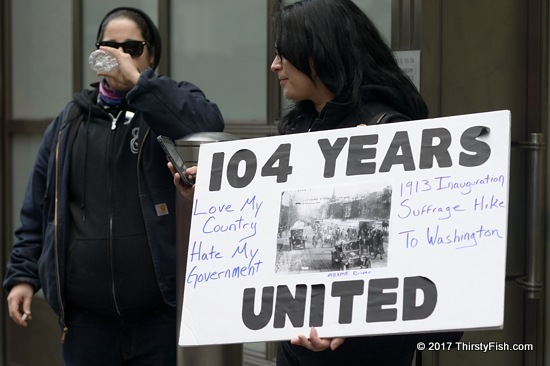"Love My Country, Hate My Government"

I know this sign is about women's suffrage in the United States but the more broad concept there is: "Love my country, hate my government".
In the wake of Wikileaks "Vault 7" leaks, the director of FBI, James Comey said: "All of us have a reasonable expectation of privacy in our homes, in our cars, and in our devices. But it also means with good reason, in court, government, through law enforcement, can invade our private spaces ... Even our memories aren't private**. Any of us can be compelled** to say what we saw ... In appropriate circumstances, a judge can compel any of us to testify in court on those private communications". Let that sink in for a moment. Comey is actually saying that although we have an expectation of privacy, we don't really have any - even in our memories. He's in effect saying: "Just trust the government".
There are many ways to refute Comey's statement. Even if the governments of today were benevolent and egalitarian, once the laws and tools are in place to surveil everyone and "read" memories, there is no guarantee that the next government will not be totatlitarian. These tools then become deadly. Many - even mainstream intellectuals - would argue that we are already there. The second criticism is summarized in a quote attributed to Cardinal Richelieu: "If you give me six lines written by the hand of the most honest of men, I will find something in them which will hang him". If the government gives itself the right to access our memories - or our browsing histories or what we do and say in front of the TV set - it can find something to prosecute just about any one of us. Think about this for a moment; You might not remember inadvertently clicking a link to what the government regards as an "illegal web site" a number of years ago, but if the government saves your browsing history, it knows. In this case, the government has access to more than your memory...
More thoughts on Vault 7 Leaks.
** The Fourth Amendment to the United States Constitution reads: "The right of the people to be secure in their persons, houses, papers, and effects, against unreasonable searches and seizures, shall not be violated, and no Warrants shall issue, but upon probable cause, supported by Oath or affirmation, and particularly describing the place to be searched, and the persons or things to be seized" and the Fifth Amendment to the United States Constitution reads: "No person... shall be compelled in any criminal case to be a witness against himself".
Posted
- Mon 2017-03-13
Captured
- 2017-01-21
- New York, NY


